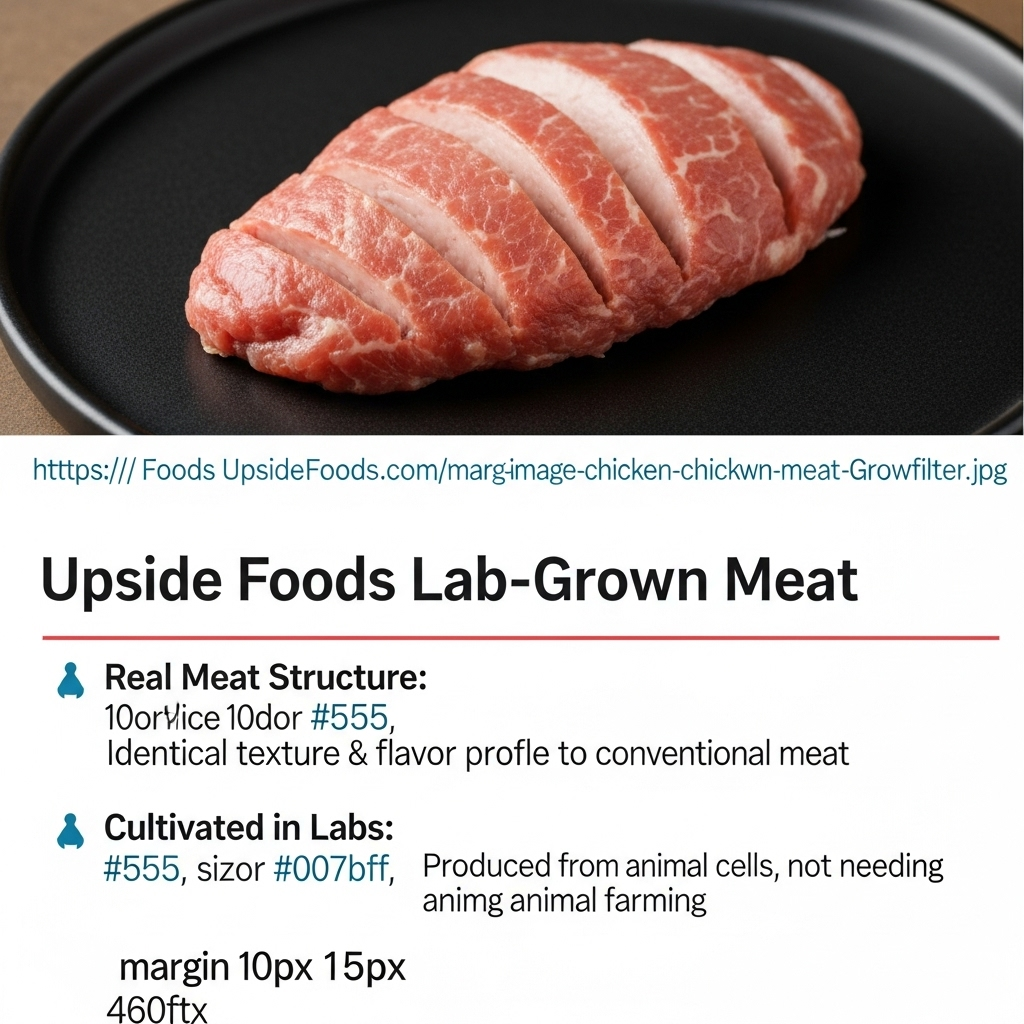Food markets: Lab-Grown Meat (Upside Foods) vs. Perfect Day Animal-Free Dairy
Quick Verdict
Both represent innovative approaches to food production with the potential to disrupt traditional industries, but face different challenges in terms of cost, scalability, and consumer acceptance.
- Both aim to reduce environmental impact and address animal welfare concerns.
- Perfect Day has achieved wider distribution and aims for price parity, while Upside Foods faces higher production costs and limited availability.
- Both face consumer acceptance challenges, though for different reasons (perceived unnaturalness vs. confusion with plant-based).

Key features – Side-by-Side
| Attribute | Lab-Grown Meat (Upside Foods) | Perfect Day Animal-Free Dairy |
|---|---|---|
| Production Method | Cellular Agriculture | Precision fermentation using genetically engineered microflora (Trichoderma reesei) |
| Primary Ingredients | Animal cells | Whey protein (β-lactoglobulin) produced by microflora fermenting sugar |
| Regulatory Approval Status | US: Approved by both the FDA and USDA. EU: Application submitted | FDA GRAS status for β-lactoglobulin (no questions letter), but not for infant formula or USDA-regulated products. Not approved under the EU Novel Foods Regulation. |
| Environmental Impact | Potential for significantly reducing environmental footprint, may require up to 90% less land and water, potential to emit up to 90% fewer greenhouse gasses | Significantly lower GHG emissions (96% lower), reduced freshwater withdrawals (99% less), smaller land requirement, less energy use |
| Nutritional Profile | Typically has the same nutritional components as conventional meat, potential to customize nutrient content | Same nutritional benefits as cow's milk, vegan, lactose-free, contains casein and whey |
| Animal Welfare Considerations | Aims to reduce animal suffering | Eliminates animal involvement, addresses factory farming and animal cruelty concerns, no antibiotics or hormones needed |
| Cost and Price Point | Production costs are currently higher than conventional meat production, estimated production cost in 2021 was $17 to $23 per pound | Aiming for price parity with traditional dairy products |
| Availability and Distribution Channels | Launched at Bar Crenn in San Francisco, planning initial launches in restaurants | Products sold in thousands of US retail stores through partnerships with various brands |
Overall Comparison
Production: Cellular Agriculture vs. Precision Fermentation; Environmental Impact: Both Lower; Cost: Perfect Day aims for parity, Upside Foods is higher
Pros and Cons
Lab-Grown Meat (Upside Foods)
Pros:
- Potential for significantly reducing the environmental footprint
- Aims to reduce animal suffering
- Potential to customize the nutrient content
- Designed to appeal to meat eaters
- Potential to reduce greenhouse gas emissions, land degradation, and water pollution
Cons:
- Production costs are currently higher than conventional meat production
- Early studies indicate hesitancy due to perceived unnaturalness and safety concerns
Perfect Day Animal-Free Dairy
Pros:
- Significantly lower environmental footprint (GHG emissions, freshwater withdrawals, land use, energy)
- Eliminates the need for animal involvement, addressing ethical concerns
- Same nutritional benefits as cow's milk
- Vegan and lactose-free
- Designed to have the same taste, texture, and functionality as cow's milk
- Cleaner, safer way to produce dairy due to controlled environment
Cons:
- Not yet approved in the EU
- Some consumers may confuse 'animal-free' with 'plant-based'
- Information on specific shelf life and storage requirements not available
User Experiences and Feedback
Lab-Grown Meat (Upside Foods)
What Users Love
- No highlights reported.
Common Complaints
- No major complaints reported.
Value Perception
- No value feedback reported.
Perfect Day Animal-Free Dairy
What Users Love
- Growing consumer acceptance, especially among younger consumers
- Addresses ethical and environmental concerns
Common Complaints
- No major complaints reported.
Value Perception
- Perfect Day expects to quickly have a lower cost of production than milk.
- Same nutritional benefits as cow's milk.
User Recommendations
- Perfect Day claims its flora-based milk is essentially the same as milk from a cow and has the same nutritional benefits.